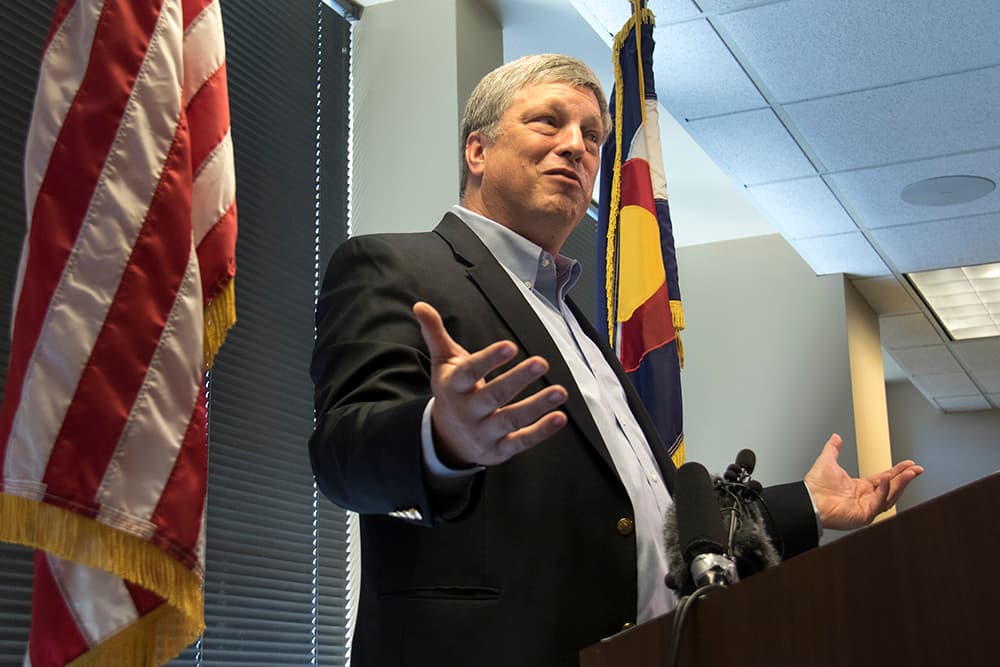
A district court judge gave an initial win Wednesday to a group that claims Amendment 71 unconstitutionally raised the bar for petitioners hoping to change the Colorado Constitution.
Judge William J. Martínez denied a request from the Secretary of State's Office that asked to dismiss the lawsuit against the amendment. Martínez also gave the state until March 9 to say why a permanent injunction should not be placed on the part of the law that requires 2 percent of signatures from each Senate district in Colorado.
Court documents show Martínez believes that because there is a substantial difference in the registered voter population from Senate district to Senate district, Amendment 71 could violate the Fourteenth Amendment’s Equal Protection Clause. The clause protects “one person, one vote."
One could interpret Amendment 71 as giving each legislative district one “vote” in favor of or against placing a proposed constitutional initiative on the ballot — like the measures that gave us legal cannabis and the Taxpayer’s Bill of Rights. District 21, where Commerce City is located, needs only 1,610 signatures to cast a “yea” vote. However, District 23, where Johnstown is located, needs 2,644 signatures, the documents show.
"But if Colorado has a good faith basis for believing it can develop empirical data showing that vote dilution is not actually occurring as between the various state Senate districts, the court will not foreclose that opportunity," the documents state.
The Secretary of State's Office needs to either present data and an argument disputing the constitutional violations or consider taking the case to the 10th Circuit Court of Appeals, said Deputy Secretary of State Suzanne Staiert.
"We have an obligation to defend a law passed by the legislature or the people, and certainly Amendment 71 was recently passed by a majority of Coloradans," Staiert said. "We believe it is constitutional and will defend that vote of the people."
During the November 2016 election, 55.7 percent of voters — 1.48 million people — passed Amendment 71. The measure no longer allows petitioners who want to get a constitutional amendment on the ballot to collect signatures only in well-populated areas in order to meet their threshold.
William Semple took issues with those changes. The Boulder resident along with The Coalition for Colorado Universal Health Care, ColoradoCareYes and Daniel Hayes of Golden filed a lawsuit against the state during spring 2017.
"I think people who voted for it really weren't paying good attention," Semple said, "because what it does is make it very expensive if not impossible to get a citizen's initiative on the ballot."
Semple could be right in terms of it costing more time and money to travel to each Senate district for signatures. But to be fair, Amendment 71 did not change the requirements for a statutory initiative to get on the ballot. Statutory initiatives change state law, not the state constitution and can be amended by lawmakers.
"This is important because of the way our country is moving. There is greater and greater inequality, there's greater and greater control by the wealthy and powerful over our political process," he said. "It's especially important in that context for citizens to be able to get items directly to the ballot."
Want more Denver news? Subscribe to Denverite’s newsletter here bit.ly/DailyDenverite.
Business & data reporter Adrian D. Garcia can be reached via email at [email protected] or twitter.com/adriandgarcia.











